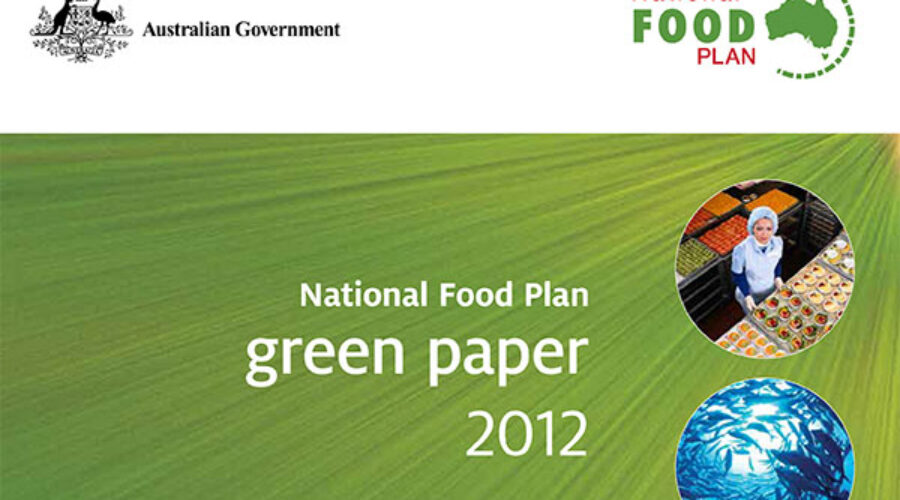Media release on the National Food Plan
This is a media release I produced for the Australian Food Sovereighty Alliance in response to the federal government’s release of their National Food Plan in May 2013…
WHERE ARE FAIRNESS, HEALTH, AND SUSTAINABILITY IN CANBERRA’S NATIONAL FOOD PLAN?
The Federal Government’s National Food Plan is big on promoting export markets and in offering advantage to big agribusiness but small on the initiatives we need to create the types of enterprises and innovations Australia’s needs for its future food industry and food security.
While the Plan has some positive aspects, instead of offering innovative solutions to a growing national and global food crisis, it overwhelmingly offers a corporatised food plan driven by the interests of big business rather than the small to medium scale food businesses that employ most Australians in the food sector of our economy.
“We were hoping for a National Food Plan that is fair to Australia’s food consumers as well as to family and smaller scale farmers and food processing businesses”, said Australian Food Sovereignty Alliance (AFSA) spokesman, Nick Rose.
“The health and well-being of all Australians, the future of our fresh water supply of which agriculture consumes around 65-70 percent, the soils that are the basis of a quality food supply and the ecosystems that supply services that support national food production are the real resources of an economically viable and health-promoting food supply. These things underwrite the viability of our farmers and our regional centres and they should have top priority in a National Food Plan that truly addresses our food future.
“The AFSA is happy to consult with the Federal Government on improving their National Food Plan so that it benefits all Australians”.
The AFSA welcomes Canberra’s announcement of a $1.5 million small grants program for Community Food Initiatives.
“It is significant that, for the first time, the Federal Government recognises and value the community food sector. Australia has a long history of informal, high productivity food production and the grant should provide a needed financial basis for its continuity”, said Mr Rose.
“The funds will be welcomed by community groups, however the money will be stretched very thinly amongst Australia’s 140 farmers’ markets, more than 500 community gardens and city farms and the other entities that make up this somewhat hidden but diverse community food system.
“Two years ago the Victorian Government invested $2 million in farmers’ markets in that state alone and in some cases local government has funded the development of community food gardens. The farmers’ markets are a valuable means of farmer direct marketing and bring fresh food to people who buy there. Community food gardens provide not only fresh food but sociability and learning. It is good that these small business and community enterprises are now recognised by the Federal Government, though the small sum offered suggests strongly that this is at best a token gesture.
“I encourage the Federal Government to look again at the allocated budget and expand it so that the informal and the community food economy can become an established part of Australia’s national food system.
“I also encourage the government to engage with community garden organisations and the AFSA in working out how to distribute these funds”.
As an organisation consisting of individuals and community food systems in the informal and formal economy, farmers, social enterprise working in food distribution, food cooperatives, small food business and academic interests, the AFSA is developing a People’s Food Plan as a viable alternative to Canberra’s National Food Plan.
“The People’s Food Plan presents a common-sense and achievable vision for a food system that is fair to Australia’s producers and consumers and that places the soil and land, farmers, food workers and eaters at the centre of a restorative food system.
That these priorities are widely shared amongst the broader Australian population was disclosed in national survey carried out for AFSA in November 2012 by the Australia Institute.
Respondents were asked what top two measures the country should adopt to guarantee its food security:
• 86% nominated ‘support local farmers to produce more’ in their top two choices
• 63% said ‘protect our best farmlands from other uses, such as housing and mining
• only 5% said ‘import more of our basic food requirements’ — yet greater reliance on imports is exactly what the current system is achieving.
When asked, ‘How important is it to you that Australian family farmers and small-to-medium sized food businesses are economically viable’
• 62% said ‘very important’
• 30% said ‘quite important’.
The nation’s farmers and small to medium size food businesses are the two groups that are suffering the most under our supermarket duopoloy, the two big supermarket chains that have brought Australia the world’s most concentrated food retail sector.
In terms of the top priorities for Australia’s food system:
• 85% chose ‘Promote and support regional and local food production and access to locally produced food’ in their top two
• only 43, 5%, nominated ‘Achieve a globally competitive food industry and new export markets’ (the main aims of the National Food Plan).
Download the AFSA Peoples’ Food Plan working paper: http://www.australianfoodsovereigntyalliance.org/peoples-food-plan/revised-plan/
For more information contact:
Nick Rose, AFSA National Co-ordinator
0414 497 819
nick.rose@australianfoodsovereigntyalliance.org

